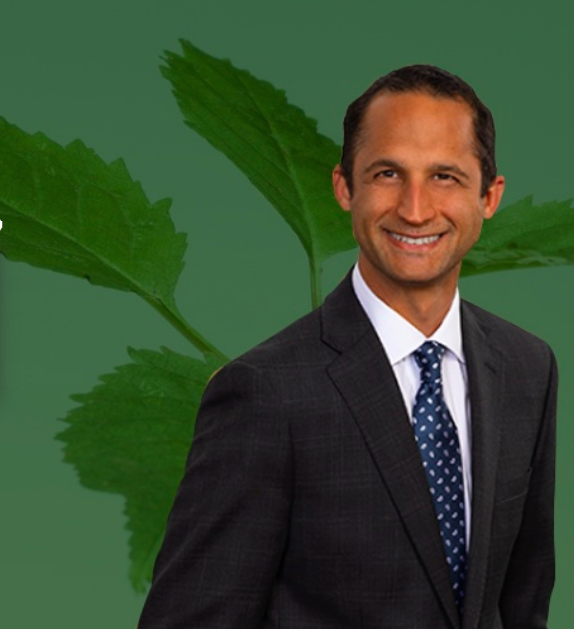
“Show me a movement,” President Obama told New York chef and writer Dan Barber while discussing possible reforms to the food system.
Specifically, Dan Barber was talking about alternatives to Big Food—a multilayered $1.5 trillion industry. Companies like Monsanto and churn out seeds and chemicals to sell to big corn and soybean industrial farms. Big Ag in turn supplies feed grain to big meat conglomerates, ultimately for the benefit of large scale groceries and fast food operations. Pitted against big food are movements for alternative agriculture—home gardens, community gardens, and businesses that take environmental stewardship seriously. Community organizers are the champs of the sustainable food movement.
But the sustainable food movement needs transparency to take root, as the fight over labeling laws demonstrates. Big Food spent $100 million to fight mandatory labeling of genetically modified organisms (“GMOs”). Even though the behemoth largely won the food labeling fight, author and food activist Michael Pollan explains how the battle for transparency will ultimately empower community food movements:
The industry’s $100 million fight to stop G.M.O. labeling has pitted many food companies against the overwhelming majority of their consumers, who tell pollsters they want their food labeled. This is a most uncomfortable position for consumer-goods businesses to find themselves in, which is why many of the G.M.A. member companies sought (unsuccessfully) to hide their involvement in the fight. Battling against transparency is bound to sow seeds of distrust, potentially undermining the most precious pieces of cultural capital Big Food owns: its brands.
So, community organizers need transparency. “Right to know” laws, at both the state and federal levels, help community organizers and journalists win on transparency, and get to the truth. To be sure, these “right to know” laws are far from perfect.
At the federal level, journalists making requests under the Freedom of Information Act frequently experience delays lasting years to get a response. The substance of FOIA also makes matters difficult for community organizers. Most problematic is Exemption 5. This broad exception to the public's right to know applies to “inter-agency and intra-agency memoranda or letters which would not be available by law to a private party other than an agency in litigation with the agency.” Because it often gives federal agencies free reign to withhold information, it has been consistently referred to as the “withhold it because you want to” exemption. For community organizers, the exemption stymies efforts to learn “how an agency came to a decision, what evidence it considered, what influences came to bear, and what compromises were struck.”
Despite its flaws, the FOIA has been crucial in holding the government accountable for all sorts of abuses, including environmental. FOIA empowered the nonprofit organization American Oversight to expose former EPA administrator Pruitt's bedfellowery with representatives of regulated industries. FOIA requests showed that environmental groups and public health groups got “almost no time” with the head of the Environmental Protection Agency.
Florida Public Records Law doesn't have an exemption as secret-friendly as the federal Exemption 5, but it does have its own distinctive set of exemptions and shortcomings. By count of the Orlando Sentinel, nearly a year ago, state agencies enjoy a total of 1,122 statutory exemptions from public records law. For example, claims files maintained by governmental insurers are exempt for Florida public records law.
But at both the federal and state levels, it is easy to make a request. Both federal and state agencies have open records coordinators. The Florida Department of Agriculture and Consumer Services, for example, maintains a portal dedicated to handling public records requests. The Florida Department of Citrus allows public records requests to be made to any departmental employee. So you don't have to be a professional community organizer or journalist to take advantage of right to know laws, but for professional organizers and journalists, these laws are a big help.
 Jesse Haskins started J. Haskins Law, P.A. to focus on local food communities. Jesse builds partnerships between farmers and communities. Prior to dedicating his practice to local agriculture, Jesse served as assistant attorney general for the State of Florida, assistant general counsel for the Florida Department of Financial Services, and as attorney for a large insurance defense firm. Jesse graduated from the Duke University School of Law in 2009. Jesse is an avid foodie. His favorite ingredient is tahini.
Jesse Haskins started J. Haskins Law, P.A. to focus on local food communities. Jesse builds partnerships between farmers and communities. Prior to dedicating his practice to local agriculture, Jesse served as assistant attorney general for the State of Florida, assistant general counsel for the Florida Department of Financial Services, and as attorney for a large insurance defense firm. Jesse graduated from the Duke University School of Law in 2009. Jesse is an avid foodie. His favorite ingredient is tahini.
Website: www.jhaskinslaw.com
Disclaimer: The views of the writers do not represent the views of the Florida Food Policy Council. We are a forum for the offering and sharing of information and encourage diversity and communication within the food system.